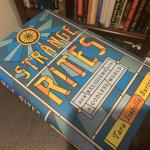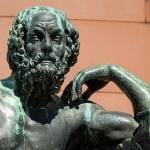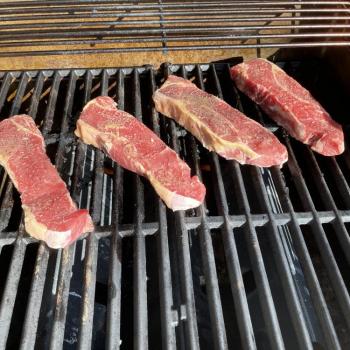 After Nietzsche, where does (secular) philosophy go?
After Nietzsche, where does (secular) philosophy go?
Or, put a different way, given the ubiquity of “criticism” as an approach to philosophical inquiry—that is, the process of ascertaining and challenging the presuppositions underlying truth-claims, as opposed to setting forth a cohesive affirmative project—it’s not unreasonable to ask where the deconstructive process ends. With everything seemingly up for grabs, is there any intellectual destination in mind? Continental philosopher Patricia MacCormack certainly thinks so—and in her recent book The Ahuman Manifesto: Activism for the End of the Anthropocene, she invites her audience to agree. It isn’t clear, though, that anyone will be inclined to take her up on the offer.
MacCormack, a professor at Anglia Ruskin University and longtime advocate for animal rights, isn’t satisfied with vegetarianism, or even veganism, as an ethical model of human engagement with the world. Rather, for MacCormack, given the depredations wrought by humankind on the domain of nonhuman creatures, the only ethical course of action for human beings is voluntary extinction—a total cessation of reproduction and an embrace of inevitable death. Antinatalism, in short, is the only permitted future.
But MacCormack refuses to treat this deconstructionist destiny as joyless or despondent. Specifically, MacCormack redefines the concept of grace in order to deploy it as the ethical linchpin for her system. MacCormack’s “grace” is not forgiveness, or a mode of creative perfecting; it is strictly a leaving-be, a refusal to interfere or act that is indistinguishable from brute indifference. That “grace,” in turn, is mediated through practices and rites that deny transcendence and destabilize the frameworks of traditional sacramentology: “occulture,” or forms of spiritual revolt against the established socio-religious order, which might include the Satanism of Anton LaVey or the Thelema of Aleister Crowley. At every turn, the orientation-toward-annihilation imperative is foregrounded. So too, MacCormack proposes a far greater engagement with the possibilities of the human corpse, which she freely admits include cannibalism—the only ethical form of meat consumption, according to MacCormack—and necrophilia.
As should be clear, it’s hard to think of a more disordered—in the theological sense—stance. The classical Augustinian definition of evil, after all, is privatio boni, the sheer absence of the good. And MacCormack’s book reflects a profound turn away from the goodness of being and a kind of exultation in the process of decreation and destruction. This isn’t standard village-atheist stuff; even a critic of religion as strident as Richard Dawkins clearly possesses a profound sense of wonder at the beauty of the natural world and an abiding desire to investigate that world—which makes one think that for Dawkins, the real barrier to belief is a defective concept of God, rather than God as such. Rather, MacCormack’s is a full-bore, reasoned-through repudiation of the classical theological-philosophical tradition at every step.
But it isn’t a logically sound repudiation, because there is a critical flaw underpinning MacCormack’s analysis: the a priori exclusion of the possibility that the nonhuman world may take as much joy in usas we do in them. As I was in the middle of writing this, my cat bounded down the basement stairs and settled herself on my lap, purring all the while. It’s frankly impossible for me to believe that she’d be happier living and dying as an alley cat in the streets of Guyana (where she was born). For a book that decries anthropocentrism on virtually every page, MacCormack’s volume excels at projecting a very human sense of self-centeredness and existential angst into the nonhuman sphere; in seeking to flee anthropocentrism, she simply inscribes it all the more.
Most people of a normal cast of mind will have no interest in wading into MacCormack’s dark waters. But The Ahuman Manifesto is, if nothing else, a sobering look at the destination of any philosophy that has no goal but annihilation. If the creed of Satan is indeed, as John Milton put it, “better to reign in hell than serve in heaven,” and some measure of self-love is (as classical thought would hold) integral to the rational life, in her unadulterated extinctionism MacCormack may offer a philosophy worse than hell itself. And that, in a twisted sort of way, is no easy feat.












